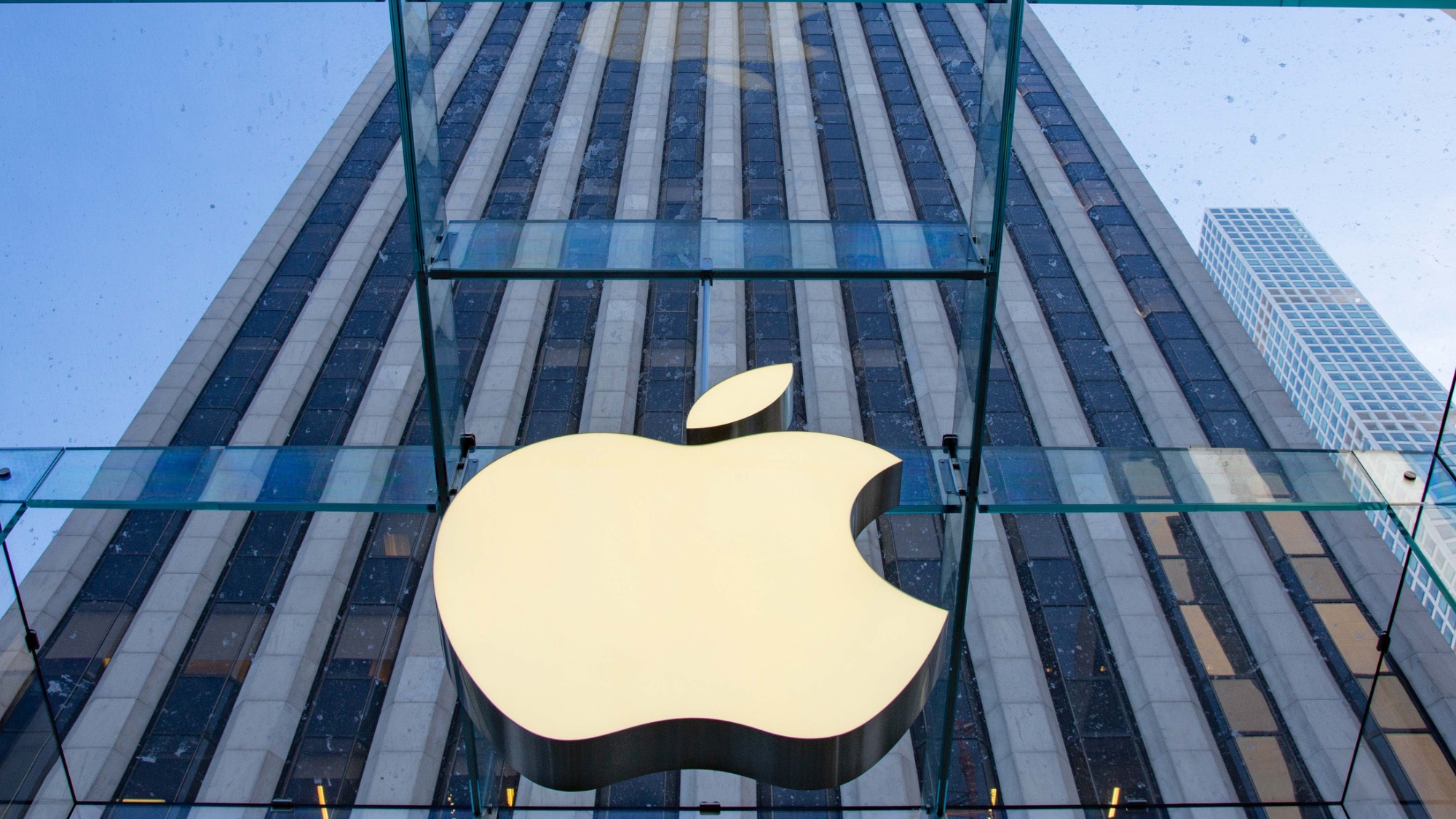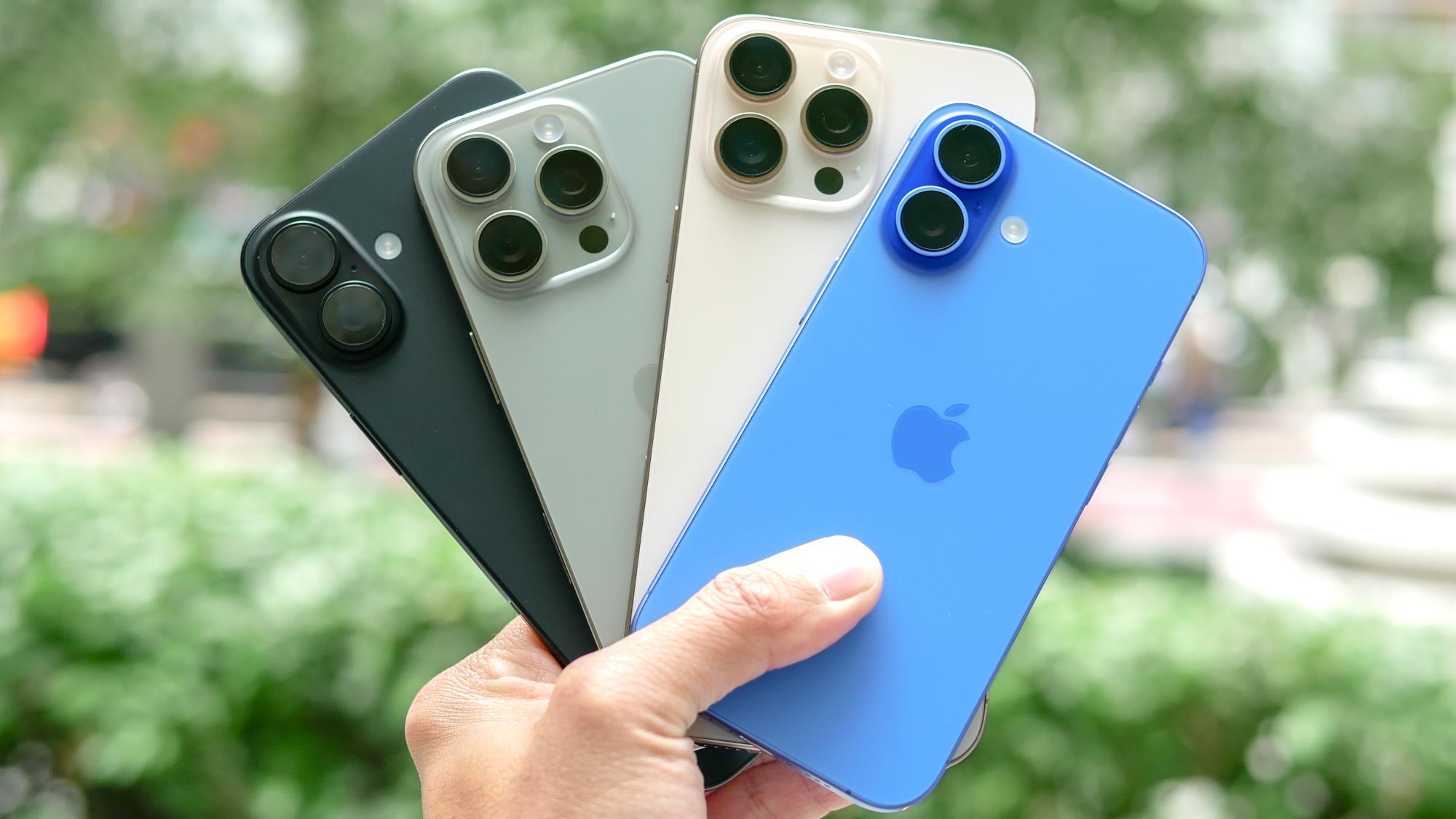Apple just delivered a smackdown to the EU over iOS 26 rollout — they won't be getting new features
Apple fights back against the DMA

Here at Tom’s Guide our expert editors are committed to bringing you the best news, reviews and guides to help you stay informed and ahead of the curve!
You are now subscribed
Your newsletter sign-up was successful
Want to add more newsletters?

Daily (Mon-Sun)
Tom's Guide Daily
Sign up to get the latest updates on all of your favorite content! From cutting-edge tech news and the hottest streaming buzz to unbeatable deals on the best products and in-depth reviews, we’ve got you covered.

Weekly on Thursday
Tom's AI Guide
Be AI savvy with your weekly newsletter summing up all the biggest AI news you need to know. Plus, analysis from our AI editor and tips on how to use the latest AI tools!

Weekly on Friday
Tom's iGuide
Unlock the vast world of Apple news straight to your inbox. With coverage on everything from exciting product launches to essential software updates, this is your go-to source for the latest updates on all the best Apple content.

Weekly on Monday
Tom's Streaming Guide
Our weekly newsletter is expertly crafted to immerse you in the world of streaming. Stay updated on the latest releases and our top recommendations across your favorite streaming platforms.
Join the club
Get full access to premium articles, exclusive features and a growing list of member rewards.
The ongoing disagreement between Apple and regulators in Europe shows no signs of letting up. The bloc's Digital Markets Act (DMA) entered into force in 2022 and almost immediately started dismantling Apple's walled garden in the region.
In order to comply with the legislation, Apple has made numerous concessions — such as allowing third-party app stores onto the iPhone and letting other payment providers use the device's tap-to-pay feature. And, of course, switching from Lightning to USB-C.
Throughout the process, Apple has complained of the security implications of the DMA and now the company has confirmed it will be withholding certain iOS 26 features for European users.
This isn't unique to the iPhone, either. Mac users in Europe can't use iPhone mirroring and won't be getting Live Activities. But when Apple's new software drops in the fall, Europeans will be getting a watered-down version.
When Apple's new software drops in the fall, Europeans will be getting a watered-down version.
According to a report in the Wall Street Journal (via AppleInsider), Apple's vice president of Legal, Kyle Andeer, stated: "We've already had to make the decision to delay the release of products and features, we announced this month for our EU customers."
The exact list of features hasn't been revealed, but Visited Places is believed to be among them.

For those of us in the U.S. or the U.K., it's interesting to watch the situation play out. The EU is a gigantic customer base for Apple which is, itself, one of the most powerful corporations in the world. It's like the unstoppable force meeting the immovable object.
Get instant access to breaking news, the hottest reviews, great deals and helpful tips.
And the ultimate question is whether or not EU iPhone users are coming out of this better or worse? They're given more freedom in how they use iPhones but Apple itself is depriving them of first-party features.
Whether withholding iOS 26 features is comes from Apple's desire to protect the users or its own technological IP remains to be seen. But Andeer added the EU's decision has created "real privacy, security [and] safety risks to our users."
Repercussions for the US

The fallout from Europe has not gone unnoticed in the U.S.
Kat Cammack, a representative from Florida's 3rd district, has proposed the "App Store Freedom Act" which sounds a lot like the DMA.
According to the district, the purpose of the bill is to "promote competition and protect consumers and developers" by "prohibiting certain anticompetitive practices by dominant app store operators."
While it doesn't specifically mention Apple, it does say it will target "large app store operators" — those with over 100 million users. That obviously affects Google as much as it does Apple. Although given the fact you can already side-load third-party app stores on Android, it's not as concerning as it is for anyone sitting in a Cupertino boardroom.
Do you think losing first-party iPhone features is a worthwhile trade-off for having open access to the hardware? Let us know in the comments section below.
More from Tom's Guide
- The iPhone 17 Air can blow Samsung's Galaxy S25 Edge out of the water — here's how
- Massive leak reveals Google Pixel 10 Pro specs — plus, Pixel 10 Pro XL updates
- I just went hands-on with the Nothing Phone 3 — and it’s the most unique flagship of 2025

Jeff is UK Editor-in-Chief for Tom’s Guide looking after the day-to-day output of the site’s British contingent.
A tech journalist for over a decade, he’s travelled the world testing any gadget he can get his hands on. Jeff has a keen interest in fitness and wearables as well as the latest tablets and laptops.
A lapsed gamer, he fondly remembers the days when technical problems were solved by taking out the cartridge and blowing out the dust.
You must confirm your public display name before commenting
Please logout and then login again, you will then be prompted to enter your display name.
 Club Benefits
Club Benefits










